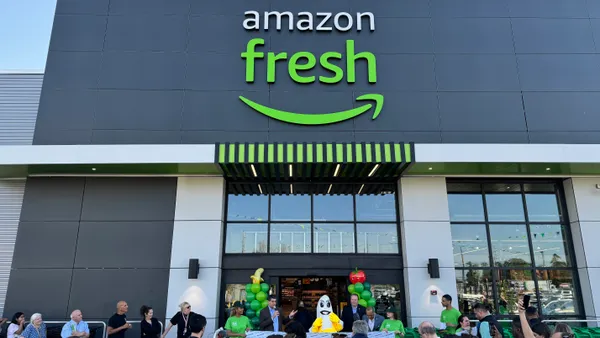After more than 16 years at Walt Disney Co., Barbara Wachsman, the director of strategy and engagement for enterprise benefits, recently moved into a new role on the other side of the benefits fence — healthcare delivery.
Wachsman is the new head of employer strategy at Galileo, a digital healthcare provider, and now works with companies looking to offer employees virtual or value-based care.
In her time at Disney, Wachsman oversaw the company’s on-site clinics and physician group partnerships and developed strategies to meet long-term healthcare goals. She’s also worked at benefit consulting and human capital consulting firms and has a Masters of Public Health and Masters of Planning/Architecture from UC Berkeley.
Wachsman recently spoke to HR Dive about her transition.
Editor’s note: This interview has been edited for clarity and brevity.
HR Dive: What attracted you to this new role?
WACHSMAN: One, the people and the leadership. The thought leadership of Galileo is the best there is, and I've always been very attracted to working with very smart innovators who really want to see change in healthcare.
Also, the area that Galileo works in, which, if I could define that very simply, is virtual primary care. Our team-based primary care is an absolute passion of mine. I am really a healthcare person through and through, and primary care is just so critical to improving the delivery of care in the country. Also, in terms of being able to create a healthy, productive workforce, primary care really should be that center point.
What is your new role and what are you doing in this space?
I was hired as a head of employer strategy, and that really means deeply understanding the needs and priorities of the large self-funded employer.
That really is my sweet spot. That's the area that I’ve been working in and acting on at Disney. I’m trying to establish opportunities to promote virtual primary care and have employers offer this to employees. It’s really deeply understanding the customer and the self-funded employer. Benefits professionals are kind of a unique group of people and bringing someone in that has been in that seat, I think, is going to be very useful to Galileo.
How did your work at Disney prepare you for this role?
Comparing Disney and Galileo, in many ways, they're very similar, focused on core values and deeply understanding your customer. And that was definitely the case at Disney, where you have a very traditional brand, who had a very traditional mission and philosophy in terms of focusing on the customer and the customer’s experience. It’s the same [at Galileo], understanding what the customer, the patient, the employee needs in terms of their healthcare and becoming a healthy, productive person.
My experience at Disney gave me an ability to understand the inputs that go into providing great care. It's something I deeply understand, and it helps us as we're talking to the healthcare delivery system and other potential clients for Galileo.
What is it that you see your customers struggling with?
The fundamental issue in healthcare today is affordability, and affordability is one of the key drivers of satisfaction with healthcare delivery. Second, is improving that patient experience, the customer's experience. It's affordability, it's a better experience, and it's improving the quality of care.
When you're talking to customers, do you see a willingness to switch to value-based care, or is there some hesitancy there?
The birth of the large purchaser, the self-funded employer is so interesting. It ultimately leads to better outcomes, the alignment of incentives both for the delivery system, as well as the payer and the patient or employee. There is a deep interest there. The difficulty is, in the delivery of care today, we have a structure of fee-for-service that's very hard to move from. The interest is there, but it is still a bit of a slog to get providers to flip that switch and move from a fee-for-service environment where it's all about driving volume to a value-based environment where it really is about outcomes.
I think the good news is that everyone who is involved in the delivery of care, from the payers to the customer to the delivery system, understands it drives better outcomes. I think everybody wants that. It's just a question of how we can build that infrastructure in what is a pretty Byzantine delivery system today where the incentives are not exactly aligned.
What are your goals in this new role at Galileo?
There are really short-term goals, in terms of how we are performing in the market, of course. But my goal is to improve the understanding in the marketplace, the value of what Galileo offers, which is this on-demand care, and the value of virtual care.
Benefits professionals are used to care that's delivered brick and mortar where someone lays hands on you – and that's important in certain circumstances — but virtual care provides the kind of access and affordability and quality when and where someone needs it. I do think there is a bit of urgency to what we are trying to do. We have a cost tsunami coming down the pike in terms of cost increases. We know that the health of people in this is not improving.
Do you have something you're most proud of from your time at Disney or something that stands out as a career highlight?
In Orlando, we had close to 75,000 employees, so a large number of employees, and we were able to do a direct deal with the two big hospital systems in Orlando. With value-based care as the cornerstone and primary care as the cornerstone, it saved Disney a tremendous amount of money. Both hospital systems are making money, and the employees absolutely love it. Have you ever heard all three elements in health care actually being happy? That just makes me so happy.
The employees were all asked to select a primary care physician within Disney during our open enrollment process. This was a first for a large company. We felt that that trusted advisor would make a huge difference in the care that's delivered to employees. It turned out to be incredibly beneficial to our employees. I'm super proud of that project. It is still going strong today. It was the largest direct deal done in the country.
One thing I really learned from Disney is the art of governance, the art of communications. The governance of this program included every stakeholder, so not only the Disney folks, who of course were involved with this, but the physicians in these large health systems, the management of the large hospitals, actuaries, all the patients and all the stakeholders. I think that's one reason why it is so successful.
Do you have advice you would offer to people in HR trying to manage this confusing landscape of benefits?
HR and benefit professionals are so critical in our healthcare system today. These are the people who determine what care gets delivered, how much it costs the individual and whether or not we demand certain outcomes.
I have my own personal interests and that is it is all about the delivery system in terms of what you're designing for healthcare for your employees. It is about developing those relationships with physicians who can take care of you whether you have chronic conditions or need urgent care, but it is all about great care delivered by great physicians and other allied professionals. It's paying attention to that fundamental delivery system.
Is there anything you would like to add?
I formally retired from Disney, but I had absolutely no interest in really retiring. I just saw this as a next phase in my career, and to be at the forefront of really helping improve the healthcare delivery system in this country is important to me. And I joined Galileo because I see what [CEO] Tom Lee has created and what Galileo can do.













